Cost of living payment UK: dates for government £400 energy grant and £650 payment - how will they be paid?
and live on Freeview channel 276
The cost of living crisis is set to get worse this winter, after news the Ofgem energy price cap is going to rocket by another 80% in October.
It is likely to cause inflation to rocket above its already record highs at a time when real-terms wages are falling and a recession is forecast.
Advertisement
Hide AdAdvertisement
Hide AdWhile Boris Johnson’s government has introduced several major cost of living support packages this year, public bodies, charities and campaigners are urging the next Prime Minister to go further to avoid a fuel poverty crisis.
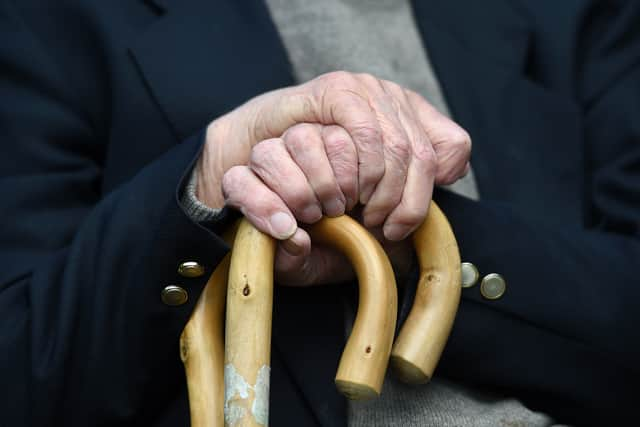

The Conservative Party leadership candidates Liz Truss and Rishi Sunak have differing views on how to tackle the crisis, while Labour has put forward its own policy ideas.
So, what are the existing support packages the government has put in place - and how can you access them?
What cost of living payment schemes have been announced?
In May, then-Chancellor Rishi Sunak unveiled a £15 billion support package to help people with the cost of living crisis.
Advertisement
Hide AdAdvertisement
Hide AdHe said at the time that he had loosened the public purse strings because of the “acute distress” high inflation was causing people across the UK.
Mr Sunak told MPs: “I know they are worried, I know people are struggling,” and added: “[the government] will not sit idly by while there is a risk that some in our country might be set so far back they might never recover”.
The Chancellor also insisted rocketing inflation could be brought under control.
“It is not some abstract force outside our grasp. It may take time, but we have the tools we need and the resolve it will take to reduce inflation,” Mr Sunak said.
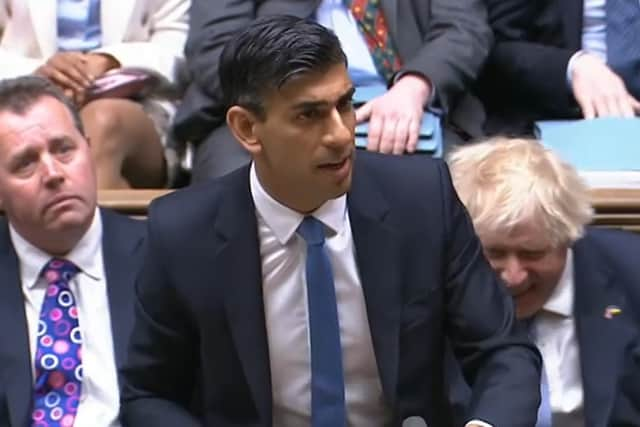

Advertisement
Hide AdAdvertisement
Hide AdRishi Sunak said the cost of living support would be funded through a mix of new taxes and government borrowing.
Around £5 billion is expected to come from a windfall tax on some of the profits energy and fuel firms have posted - although Mr Sunak and Treasury officials referred to it as a levy.
Opposition parties have been calling for a similar tax for several months and claimed the Chancellor had been dragged “kicking and screaming” into a U-turn on the policy.
Most of the funding for the spending - roughly £10 billion - is set to come from government borrowing.
Advertisement
Hide AdAdvertisement
Hide AdIt marked a major turnaround from a Spring Statement that saw little public spending but major tax hikes and the government’s insistence that extra public spending would make inflation worse.
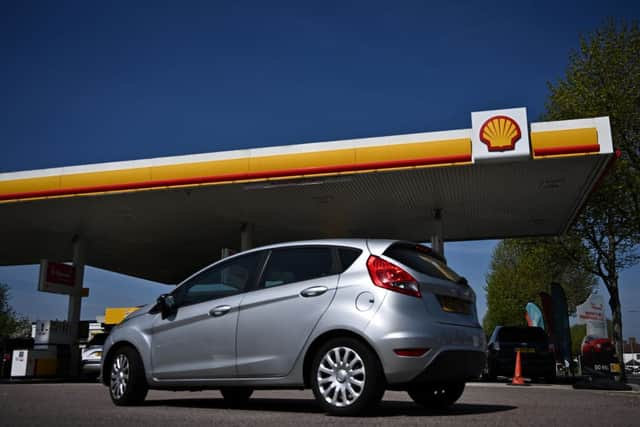

What cost of living support was announced?
The major announcement from Rishi Sunak was that a previously announced £200 energy bills loan due to be paid out in October would now become a £400 energy bills discount.
This universal support will be paid out to every household in the UK over a period of six months from October when the new energy price cap is set to come into force.
Initial payments of £66 will be made in October and November 2022, with £67 per month paid out as we get into 2023.
Advertisement
Hide AdAdvertisement
Hide AdYou do not have to do anything to receive these payments, as they will be automatically applied by your energy supplier.
Treasury officials admitted it will be paid to some individuals multiple times if they pay bills at multiple properties, e.g. holiday homes.
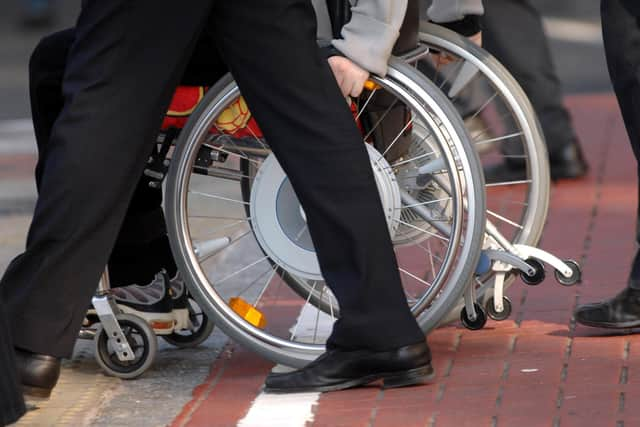

Rishi Sunak, who recently appeared in the Sunday Times Rich List alongside his wife Akshata Murthy, said he would be donating his £400 to charity.
Other policies announced by the government included:
- A one-off targeted £650 payment to support low-income households - the Treasury said this would support more than eight million households who are paid benefits. The money is being paid out in two instalments in July and in the autumn to those who are registered to receive certain benefits- although there have been delays in its payment.
- A £300 payment to pensioner households - this money will be paid out across November and December alongside the existing winter fuel allowance.
- £150 for people on disability benefits - it is set to be paid in September with the usual benefits payment.
A further £500 million would be given to councils in England as part of the existing household support fund, and would have its time limit extended to March 2023.
Advertisement
Hide AdAdvertisement
Hide AdThis fund is used by local authorities to distribute money or key items to the poorest and most vulnerable people in their area.
Overall, it means the poorest eight million households will receive at least £1,200 in additional government support in 2022, the Treasury claims.
While Boris Johnson has previously said he would not announce any further cost of living help, ministers have since suggested more support could be on the way.
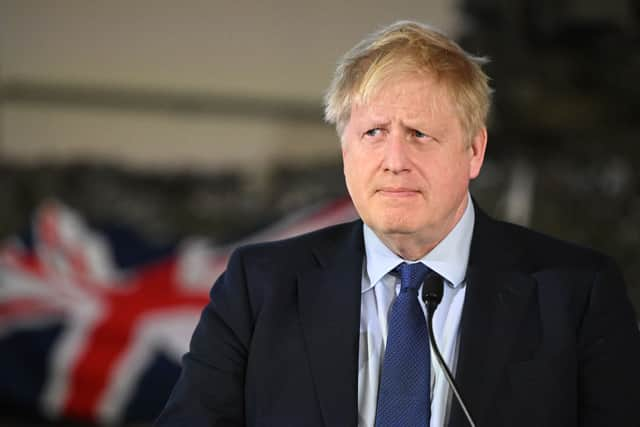

Speaking as the new Ofgem price cap was announced, Chancellor Nadhim Zahawi said: “While Putin is driving up energy prices in revenge for our support of Ukraine’s brave struggle for freedom, I am working flat-out to develop options for further support.
Advertisement
Hide AdAdvertisement
Hide Ad“This will mean the incoming Prime Minister can hit the ground running and deliver support to those who need it most, as soon as possible.”
Liz Truss has indicated she would be willing to scrap the £400 universal energy bills discount if she becomes PM.
Is government cost of living support available UK-wide?
Most of the announcements made by Rishi Sunak will be rolled out across England, Scotland and Wales.
However, the household support fund will be England-only, with funding, as calculated by the Barnett formula, distributed to the devolved nations.
Advertisement
Hide AdAdvertisement
Hide AdThe government says it will match the energy bills support for the people of Northern Ireland.
However, there is a big question mark over how and when this funding will be distributed in the country given the Stormont Executive remains suspended.
The power-sharing agreement in Belfast broke down after nationalist party Sinn Fein became the largest party in May 2022’s elections, overtaking unionist grouping the DUP.
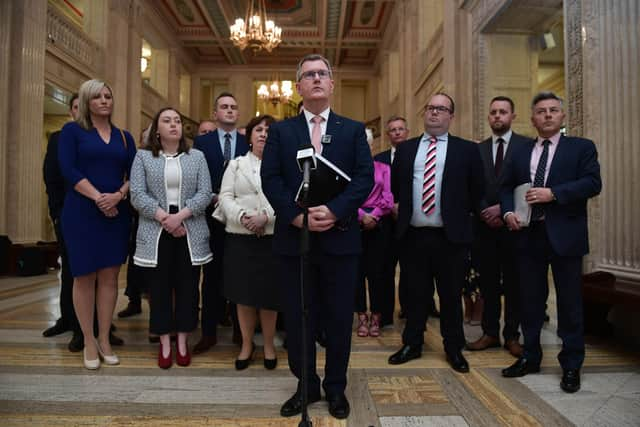

The DUP has said it will refuse to cooperate until its concerns over the Brexit protocol - which Sinn Fein supports - are addressed.
Advertisement
Hide AdAdvertisement
Hide AdSinn Fein’s Finance Minister in Stormont Conor Murphy said: “The additional £14 million funding we will receive from the Household Support Fund cannot be allocated in the absence of an Executive.
“This now means there is a total of £435 million which cannot be allocated to help families, workers and businesses with the cost of living and to support public services, particularly our health service.”
DUP MLA Jonathan Buckley said his party wanted “to see devolved government operational” but insisted it “must be on a sustainable, long-term footing” to do so.
Additional reporting by PA
Comment Guidelines
National World encourages reader discussion on our stories. User feedback, insights and back-and-forth exchanges add a rich layer of context to reporting. Please review our Community Guidelines before commenting.
